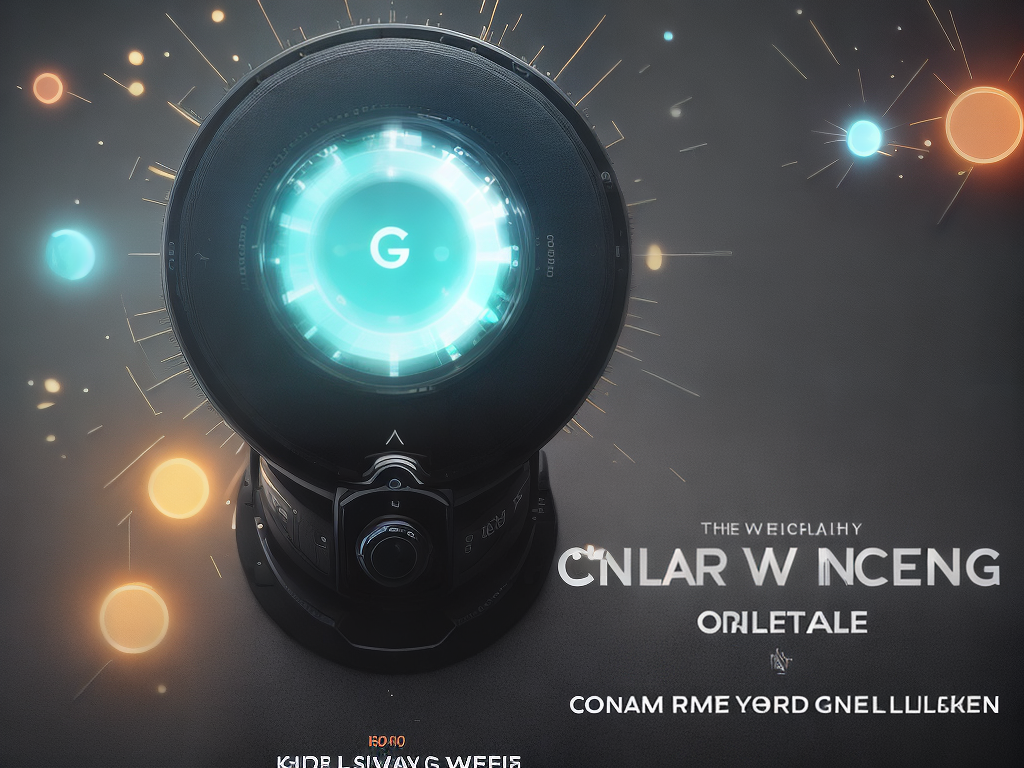Hey there, SEO-savvy readers! Are you looking for a way to amplify your search engine optimization (SEO) efforts? If so, then I’ve got just the thing for you: page titles and meta descriptions.
These two elements are essential components of any successful SEO strategy—and in this article, I’m going to explain why. You’ll learn all about what they are, how they work together, and most importantly, why they matter when it comes to ranking higher in SERPs.
So if you’re ready to take control of your website’s visibility online, let’s get started!
What Are Page Titles & Meta Descriptions?
At first glance, page titles and meta descriptions may seem like a small part of SEO, but they’re actually huge! Think of them as the clothing that frames your website: if it looks good on the outside, readers will be more likely to take a closer look inside.
Page titles are the headlines you see at the top of webpages in search engine results. They appear before visitors even click through to your site—so this is where you want to make an impression! Your title should include relevant keywords for your business or topic so potential customers can quickly identify what your webpage offers.
Meta descriptions are short snippets of text that accompany each page title in search engine listings; they provide additional information about what someone can expect when they visit your website.
Unlike page titles which tend to focus more on keywords, meta descriptions let you write freely with marketing-focused language that encourages people to click on your link. Keep it concise yet enticing by using action words and emotionally charged language.
Without these two elements working together seamlessly, it becomes much harder for potential customers to find your website amongst all the other options out there. So don’t overlook how important having great page titles and meta descriptions can be for SEO success!
How Do They Work Together?
Page titles and meta descriptions are important components of SEO, but how do they work together? They both play a role in helping search engines understand what your page is about.
First off, let’s talk about page titles. Page titles appear at the top of pages or posts on websites. They should be concise – no more than 60 characters – and accurately reflect the content on that page. This helps Google quickly identify what it’s looking for when someone searches for something similar to your page title. It also gives readers an idea of what they can expect from clicking on your link.
Meta descriptions don’t influence rankings directly, but they affect whether people click through to your website from search engine results pages (SERPs). Meta descriptions should explain what visitors will find if they click through and should have between 150-160 characters so it doesn’t get cut off. If you leave out a meta description altogether, Google may use some text from the beginning of your post as its own snippet instead.
Now that we’ve discussed the basics, here’s a quick breakdown of why these two elements are essential:
-
Page titles tell search engines what each page is about
-
Meta descriptions help encourage users to click on links in SERPs
-
Optimized titles and descriptions increase visibility in organic search results
-
Good titles and snippets make it easier for potential customers to find you online
By understanding how page titles & meta descriptions impact SEO together, you can create better content optimized for higher visibility with effective keywords driving traffic back to your site.
How Do Page Titles & Meta Descriptions Impact Seo?
I’m sure you’ve heard the phrase ‘content is king’ when it comes to SEO. But what many people don’t realize is that page titles and meta descriptions also have a significant impact on search engine rankings. These elements are critical for helping your content get found in the SERPs, so let’s take a look at how page titles & meta descriptions can improve SEO efforts.
The most important thing to remember about page titles and meta descriptions is that they should accurately reflect the content of each page or post. This helps ensure that users understand what their search query will yield before clicking through to read more. Additionally, if you include relevant keywords in these elements, it increases your chances of appearing higher up in the SERPs for those terms; this gives potential readers an incentive to click through from the results pages directly into your site.
| Feature | Benefit |
|---|---|
| Accurate Titles/Descriptions | Easier for Search Engines To Understand Content Relevance |
| Keywords In Titles/Descriptions | Increased Chances Of Appearing Higher Up In Results Pages |
Having effective titles and descriptions is key for providing users with context as quickly as possible – something that Google looks favorably upon too! As such, crafting succinct yet descriptive titles & descriptions that capture attention can help boost click-through rates (CTRs), bringing even more organic traffic to your website.
So there we have it: while having great content is essential, paying attention to all aspects of SEO including creating accurate, keyword-rich page titles & meta descriptions can make a big difference to visibility and engagement levels too. What makes an effective page title then? Let’s find out…
What Makes An Effective Page Title?
Page titles and meta descriptions are important when it comes to SEO because they help search engines like Google determine the relevance of a page. The title and description give an idea of what users will find on the page, so having well-crafted ones can help attract more attention from potential visitors.
One of the most important elements for building effective page titles is incorporating keywords that accurately describe the content on the page. Keywords need to be relevant and should appear as close to the beginning of the title as possible.
It’s also essential to keep your titles concise; lengthy titles might get cut off in search engine results pages (SERPs). It’s also beneficial to make sure your titles are unique and distinguishable from other similar pages on different websites. This helps with brand recognition, making it easier for customers who already know you to quickly identify your website in SERPs.
Additionally, including words such as “best” or “top” may draw more attention than generic phrases used by competitors. Using action verbs at the start of your title can also be helpful in attracting viewers, since this implies there is something useful within the content that readers can take advantage of.
Action words create purposeful language and provide clarity about what kind of information someone will find if they click through. With all these tips taken into consideration, crafting an effective page title becomes much simpler!
Now let’s move onto discussing how creating a great meta description can further optimize a web page for SEO success…
What Makes An Effective Meta Description?
I’ve already discussed how important meta descriptions are for SEO, but what makes a good one? After all, it needs to be short and sweet while still conveying the necessary information. It should also capture readers’ attention so they click on your link.
The most effective meta descriptions have several key elements in common. First of all, keep it brief – no more than 160 characters. Your description should accurately reflect the content of your page without being too vague or misleading. You want to invite people to read it by using words that make them curious about what you have to offer. Finally, use keywords relevant to your topic; this will help search engines understand the purpose of your page better and rank it higher in results pages.
When crafting an engaging meta description, try to think from the reader’s perspective. What questions do you need answered? How can you provide solutions quickly? Once you’ve nailed down these details, you’ll be well on your way towards creating a compelling meta description that will draw readers in!
Writing convincing copy is only half the battle when it comes to creating great meta descriptions; now let’s move onto writing powerful page titles…
How To Write A Page Title
Writing page titles and meta descriptions are key elements in SEO, so they should be crafted carefully.
For starters, I’m going to talk about writing a great page title that will help you rank higher on search engine results pages (SERPs).
Here’s how to write an impactful page title:
-
Keep the length between 50-60 characters; shorter is better!
-
Focus on the keywords relevant to your content; this helps search engines understand what your webpage is about
-
Include your brand name for recognition; it lets readers know who wrote the information
-
Make sure it’s eye-catching and descriptive; use action words or phrases to grab attention
The goal of creating a powerful page title is twofold: attract potential customers while also improving ranking on SERPs. It takes time and effort but once you have mastered the basics, you’ll be able to create titles that make a difference.
Now let’s move onto crafting an effective meta description – another important element when it comes to optimizing webpages for SEO success!
How To Write A Meta Description
Our page titles and meta descriptions are the gatekeepers to our content, like a bouncer at the entrance of an exclusive nightclub. Without them, potential visitors won’t be able to find their way into our world. Optimizing these elements is essential when it comes to SEO as they provide search engines with key information about what we offer on any given page.
The title tag should include some keywords relevant to the topic but also entice readers to click through from search engine results pages (SERPs). This means crafting something short yet descriptive enough that users will know exactly why they should click your link over another one in SERPs. Keeping titles under 65 characters long can help ensure they display properly across all devices too.
Meta descriptions don’t have any direct impact on rankings, but they do influence how many people decide to actually visit your site once they’ve found you in the SERPs – so make sure yours stands out! Write concisely and clearly while including some compelling language that encourages people to take action by clicking through and visiting your website. Try sticking to around 160 characters or less for maximum impact.
Optimizing page titles & meta descriptions has myriad benefits beyond improving SEO performance. It helps establish brand recognition and credibility, increases traffic due to better visibility in SERPs, as well as boosting user engagement rates since more targeted clicks lead to higher conversion rates.
With this in mind, let’s take a look at how best to craft effective calls-to-action for our webpages…
The Benefits Of Optimizing Page Titles & Meta Descriptions
I’m sure you’ve heard that page titles and meta descriptions are important for SEO. But what exactly do they do? And why should you even bother optimizing them?
As it turns out, page titles and meta descriptions play an essential role in how search engines rank your content — making them crucial elements of any effective SEO strategy. The benefits of optimizing these two features begin with the most obvious: visibility.
When a user searches the web using relevant keywords, the title and description associated with your website will be displayed alongside its URL in the SERPs (search engine results pages). By ensuring that both elements accurately represent the content on your site, searchers can quickly identify which result is best suited to their needs — increasing click-through rates from organic search traffic significantly.
But there’s more than just increased visibility at stake here; by crafting compelling page titles and meta descriptions you can also make a strong first impression about who you are as a business or brand. A well-written headline accompanied by an enticing preview text can help win over potential customers before they ever visit your site – creating trust and familiarity right away.
In addition to this, keeping up with industry trends by utilizing rich snippets such as ratings/reviews or product information within your meta tags helps give users a better idea of how your offerings compare to competitors while boosting credibility too! Optimizing these components provides immense value when done correctly — helping you stand out among other sites vying for attention while driving quality leads directly to your door.
The key takeaway here is that writing optimized page titles & meta descriptions is worth doing if you want to ensure maximum impact from all those clicks! With that being said, let’s explore some tips for getting started…
Tips For Writing And Optimizing Page Titles & Meta Descriptions
I’m sure you know why page titles and meta descriptions are important for SEO. You need to ensure that they’re optimized, so Google knows what your pages are about. This helps increase your visibility in search engine results.
But how do you create effective page titles and meta descriptions?
First off, it’s key that you capture the attention of both users and search engines with a compelling title. Keep them short but descriptive, aiming for no more than 60 characters if possible. Try including keywords relevant to the content on that page, as well as actionable language like ‘Buy Now’ or ‘Download Here’.
Meta descriptions should also be concise – around 160-180 characters – while containing targeted keywords related to the page topic. Make sure these words appear early in your description, too! That way when people see it in their search results, they’ll instantly know whether your website is worth clicking through to or not.
It’s equally important to avoid keyword stuffing in your titles and descriptions; this can actually impede ranking performance by making content appear spammy. Your goal should be finding a balance between using enough keywords without going overboard – remember, focus on quality over quantity here!
Lastly, make sure each title/description combination is unique across all of your webpages; duplicate information will only confuse visitors (and search engine bots!).
Crafting effective titles and descriptions takes practice and patience – luckily there are plenty of online resources available to give you some extra help if needed! With a little bit of effort upfront though, you can easily optimize these elements for better SEO performance over time.
How To Monitor Your Progress
Now that you’ve learned the basics of how to write and optimize page titles & meta descriptions, it’s time to start tracking your progress. It can be compared to taking a car for a test drive—you need to get on the road and observe what works best.
Tracking your SEO performance is like navigating a dark tunnel with many twists and turns — if you don’t know where you’re going, chances are you won’t reach your destination in one piece. Like having a map showing each turn before entering the tunnel, monitoring your SEO results allows you to assess changes in your rankings as they happen and make adjustments accordingly.
Tracking also helps identify factors that have an impact on your website’s search engine visibility such as external links or new content pieces created by competitors.
It’s important to keep track of keyword trends over time – stay ahead of the curve by keeping tabs on what keywords are hot right now, which ones may become obsolete soon, and which ones will take their place. This information will help inform decisions about topics for future blog posts, ad campaigns, and more.
Knowing when there has been an increase or decrease in traffic from particular sources also provides valuable insight into user behavior so you can better target potential customers or clients.
To ensure success with SEO efforts, it’s essential to set up tracking systems properly at the outset so data is accurate and reliable throughout. With granular insights available through analytics tools like Google Search Console and SEMrush, marketers can analyze key metrics like click-through rates (CTRs) and organic impressions to gain actionable insights into how users interact with their websites.
Armed with this knowledge, businesses can adjust strategies accordingly while optimizing their overall web presence – all without ever leaving the comfort of their own dashboard!
Common Mistakes To Avoid
When it comes to SEO, page titles and meta descriptions are essential for optimizing your website. They’re the first thing potential customers see when searching in a search engine, so it is important to get them right. Unfortunately, many businesses make mistakes with their titles and descriptions that can cause missed opportunities.
Here are some of the common pitfalls you should avoid:
Mistakes with Titles
- Using generic or vague titles: Generic titles like “Welcome Page” don’t convey any information about what is on the page, making it difficult for people to click through from a search result.
- Not including keywords: Including relevant keywords in your title lets search engines know more about the content of the page and increases its chances of ranking higher in searches.
- Duplicate titles: If two pages have identical titles, this confuses both users and search engines as they won’t know which one to display.
Mistakes With Descriptions
- Too long/short descriptions: Meta descriptions should be between 150-160 characters because anything longer will get cut off by Google. Anything shorter may not provide enough detail to draw readers in.
- Unclear language: Meta descriptions need to give an accurate description of what the page contains and use clear language that entices readers. Vague statements or ones that contain errors will hurt your click rate.
- No call to action: A good meta description should include a call to action such as ‘Shop now’ or ‘Book today’. This helps encourage readers to take further steps after clicking your link.
With these tips in mind, you’ll be able to create effective page titles and meta descriptions that help improve SEO and attract more visitors to your site!
To sum up, if you want success with SEO then it’s vital that you pay attention to every little detail -especially when writing out your titles and descriptions.
Conclusion
Having discussed the common mistakes to avoid, it’s now time to wrap up this section.
Looking at the big picture, page titles and meta descriptions are both essential for SEO success. They help search engine spiders identify your content and provide searchers with a brief summary of what’s on the page. Without them, you’re missing out on an opportunity to make a first impression that could win you clicks from potential visitors.
What’s more, these summaries can attract users who might not have otherwise clicked through to your website. By being mindful of keyword placement and crafting compelling copy, you can give yourself a huge boost in rankings while also drawing attention from curious browsers. It requires work upfront but pays off tenfold down the road when organic traffic starts rolling in!
It’s important to note that there is no one-size-fits-all solution here; every website has different needs based on its specific niche and target audience. Experimentation is key—try different styles of headlines or vary word choices until you find something that resonates with people clicking through from SERPs (Search Engine Results Pages). You may even try A/B testing if available resources permit it; either way, use data as your guide along the journey towards discovering what works best for you.
With all this in mind, don’t be afraid to take risks and step outside of your comfort zone! An effective title should draw interest without overpromising; similarly, unique meta descriptions will do wonders for capturing attention amidst competition within SERPs.
Now let’s move onto our next topic: FAQs!
Faqs
Wow! When it comes to SEO optimization, page titles and meta descriptions are absolutely crucial. They can make or break a website’s success in the search engine results pages (SERPs). If you want your business to be seen online, then mastering these two components is an absolute must.
First off, page titles are extremely important as they tell both users and search engines what each page of your site is about. They should accurately reflect the content on the page while also being attractive enough to stand out from the competition in SERP listings.
Additionally, meta descriptions provide extra information that helps people decide if they want to click through to your website. By using engaging language and keywords relevant to their query, you can entice more clicks which leads to increased traffic on your site.
When crafting effective page titles and meta descriptions for SEO purposes, keyword research plays a key role. Knowing which words and phrases have a high-volume of searches allows you to target those terms within your title tags and summaries so that your content will get discovered by potential customers when they perform related queries online.
Search engines use these markers as signals for relevance, so optimizing them properly is essential for helping users find exactly what they’re looking for quickly and easily.
Ultimately, having strong titles and descriptions makes all the difference between appearing at the top of organic search rankings or not showing up at all – regardless of how amazing your webpages may be. So don’t miss this opportunity! Put some time into honing these elements of your website today so that you can reap the rewards down the line with greater visibility among searchers everywhere!
Conclusion
Well, there you have it! Page titles and meta descriptions are the foundation of a successful SEO strategy. They may not be flashy or exciting like keyword research or link building, but they’re just as important when it comes to optimizing your website for search engines.
It’s like baking a cake – if you don’t get the recipe right in the beginning, you won’t end up with a delicious end result. So take some time to make sure that your page titles and meta descriptions are top-notch – I promise it will pay off in the long run!




























